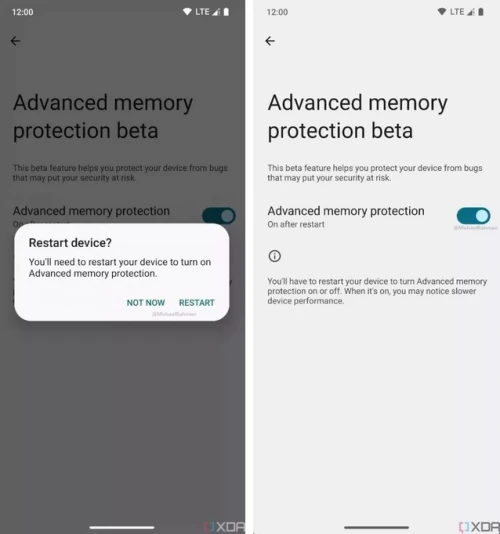Here are the first phones to run stable Android 14
The Android 14 Developer Preview has just started and the timeline for the software rollout has been unveiled. According to the timeline, the stable Android 14 should be coming in around July and sources have predicted the first set of phones that will take up the stable Android 14 software.

With the Android 14 Developer Preview now out, XDA’s Mishaal Rahman uncovered an Advanced Memory Protection security feature for the future Android release. This is designed to keep phones secure against memory safety flaws.
These are defined by Google as “Errors in memory handling in native programming languages,” and they “are the most prevalent issue in Android codebases,” according to the author. They are responsible for more than 60% of high severity security vulnerabilities and millions of user-visible crashes.”
These flaws have a detrimental impact on stability and are responsible for the majority of software crashes on Android devices. When you’re running the Android 14 Developer Preview, Android 14 Beta, or the official version of Android 14, go to Options > Security & privacy > More security settings and enable Memory tagging.
Memory Tagging Extension (MTE) is a required hardware feature on ARM V9 Central Processing Units (CPU) cores that protects your phone against memory violations that might compromise your device’s security. In other terms, MTE can safeguard your device from memory safety flaws. However, because the Google Tensor 2 processor that powers the Pixel 7 series employs ARM’s V8.2 CPU cores, this functionality will not operate on the Pixel 7 or Pixel 7 Pro.
How Pixel 8 will get the stable Android 14
The Pixel 8 series, which is not scheduled to be released until the fourth quarter of this year, may be the first phone to include Android 14 memory protection. To do this, the Tensor 3 processor will need to utilize ARM V9 CPU cores, similar to those used on the Snapdragon 8 Gen 1 and Snapdragon 8 Gen 2 chipsets. That is if Google does not delete the functionality before the stable Android 14 is released.
Because the Pixel 8 and Pixel 8 Pro may be the first Android 14 phones to include ARM’s V9 CPU cores, the next generation of the Pixel flagship series may be the first to implement Android 14’s new Advanced Memory Protection. According to Google, “given the constantly rising complexity of code, memory safety problems will proliferate over time if left untreated; therefore, equipping our ecosystem with the tools and technology that can identify and mitigate such bugs is vital to our long-term success.”

